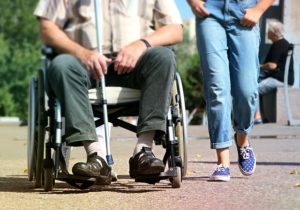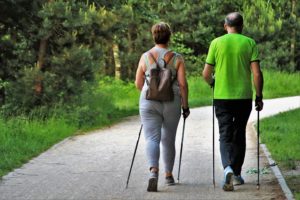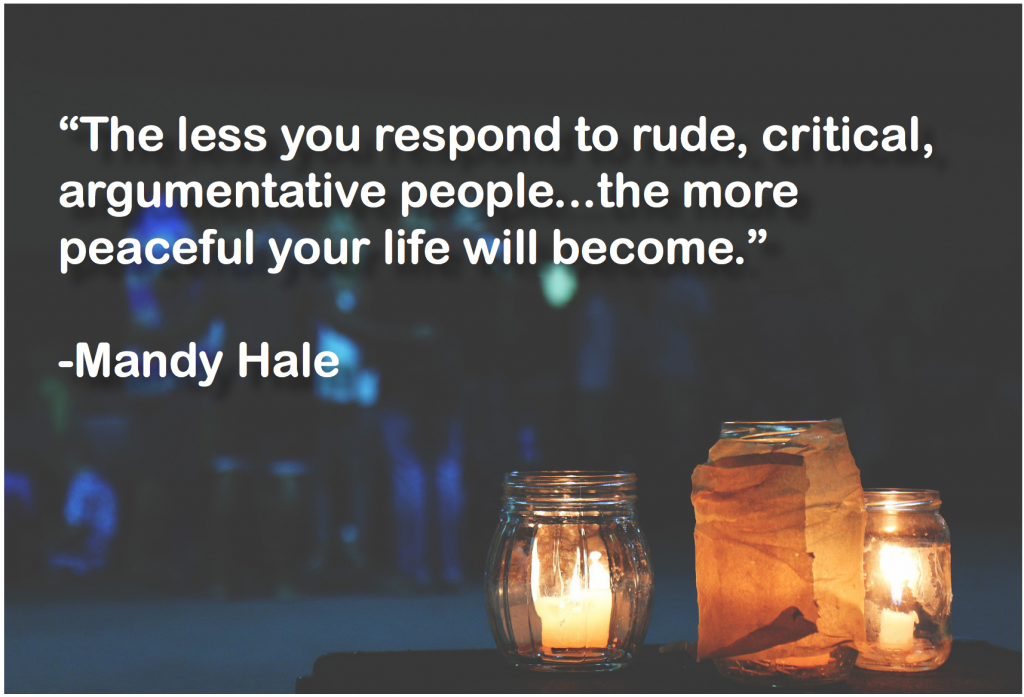Sooner, or later, we or a loved one will experience a loss of independent functioning that requires care, either in the home or in a residential setting. Retirement Connection is an invaluable source of Information about and resources for providing this care. Few plan ahead for the need for assistance and decisions often must be made quickly. Older adults and their loved ones would be wise to keep a current copy handy for this situation. Better still, they should consider using this guide right now to establish a plan. Choices and decisions made in haste are often not the best. Retirement Connection also contains information about products and services that address the needs of aging adults and help preserve their independence.
What is skilled nursing?

Is it the right time? What is skilled nursing? How much will it cost? These are great questions! Here is some basic information to get the answers you need!
Whether it’s a spouse, grandparent, sibling or dear friend, we all want what’s best for those we love. That’s why truth be told, we normally don’t think about skilled nursing facilities until the care they need is too much for ourselves or a caregiver to provide. Looking at skilled nursing facility placement, whether for a short stay post surgery or a more permanent arrangement, can be overwhelming.
Is it the right time? What is skilled nursing? How much will it cost? These are great questions! While answers may very slightly depending on the exact situation, here is some basic information that you can feel con dent using when looking into making this important decision.
What is skilled nursing?
A skilled nursing facility is designed to help care for patient’s who have needs which require 24-hour, 7 days a week nursing care including tube feeding, complex wound care, IV antibiotics, and daily therapy.
Candidates for skilled nursing are both those who have planned surgeries/ procedures (hip or knee replacement etc.) and those who have an acute and unplanned medical issue (UTI, sepsis, cellulitis, etc…) At the hospital, the patient will be assigned to a case manager who will be responsible for letting the patient and family know that skilled nursing is recommended, ask which facility they prefer and work with the facility of choice to facilitate the admission. Of course, always feel comfortable stopping in to see the Admission Coordinator at your local skilled nursing facility to ask any questions, discuss concerns and get a clear picture of how the admission process will look.
Not all skilled nursing residents are there for short-term rehabilitation from a surgery or illness. Some residents are there under what is called long-term care. Long-term care (LTC) is designed to care for those who will need round the clock nursing care for the foreseeable future. Usually, these residents have a terminal condition, disability, or illness which impacts their ability to safely manage activities of daily living. These types of admissions will also go through the Admission Coordinator at the skilled nursing facility, so they should be able to answer any and all questions you may have.
While most skilled nursing facility patients come after a hospital stay, it is possible to admit from home. If your loved one has met the qualifying hospital stay within the last 30 days, they may
be able to admit with help from their primary care provider. It is best to start by calling the skilled nursing facility of choice to review your options. They will walk you through the process from there.
How is it covered?
Medicare covers skilled nursing care as long as the patient meets what is called a “qualifying hospital stay”. This means that your loved one was an inpatient in a hospital for three consecutive midnights. It’s important to note that an emergency room visit, observation stay, and outpatient services do not count towards the qualifying stay. If the qualifying hospital stay is met, Medicare will pay for up to 100 days (as long as the patient meets skilled criteria). The rest 20 days are paid for 100% by Medicare, days 21-100 will have a co-pay; for 2017 the amount is $164.50 per day. If the patient has a supplemental insurance or Medicaid, that plan will often pick-up the co-pay for them.
Some people choose to have an insurance company manage their Medicare bene ts. Examples of these types of plans include Healthnet, Care Oregon, MODA and Regence MedAdvantage.
For someone who has these insurances, the qualifying hospital stay can be overridden if the insurance company feels it’s warranted. The assigned case manager at the hospital will work with the insurance company to get authorization. If the patient is coming from a doctor’s office or from home, the admissions coordinator along with the patient’s Primary Care Provider can work together to try and request an insurance authorization.
For someone looking for Long-Term Care placement, Medicaid is the most common payer. Anyone who doesn’t have Medicaid would most likely pay privately.
It’s important to remember that there are people who work in this profession/ industry and it’s their job to make sure this process isn’t any more dif cult than it needs to be. Never hesitate to call your local skilled nursing facility’s admissions coordinator to nd out if skilled nursing is the correct route to take for your loved one.
Article Provided by:
Hearthstone, Avalon Health Care Group
541-779-4221
www.avalonhealthcare.com
Search Retirement Connection Listings for Residential Care Facilities
Search Residential Care Facilities for Grants Pass
Search Residential Care Facilities for Klamath Falls
Search Residential Care Facilities for Medford
Search Residential Care Facilities for Roseburg
3 reasons to start saving for senior care

You might not be thinking about saving for senior care just yet, we get it, you’re more concerned with saving for next year’s vacation. The trouble is if you’re not saving for your future, who is?
You might not be thinking about saving for senior care just yet, we get it, you’re more concerned with saving for next year’s vacation. The trouble is if you’re not saving for your future, who is? According to an Employee Bene t Research Institute (EBRI) survey in 2012, 60 percent of workers 55 and older have less than $100,000 saved for senior living options and 59 percent of workers age 35-44 have never even bothered to calculate what they need to save for retirement.
Here are three reasons you need to start saving for senior care now:
1. Keep your independence for financial support. If you start thinking about saving now, you won’t have to deal with one of the more common problems many seniors face today—outliving their assets and income. Unfortunately, this problem often results in putting a straining financial burden on children and families. An easy way to ensure that doesn’t happen is to start saving for retirement and senior care now, it’s never too early.
2. Don’t end up with less money than you need. The core logic is simple: if you save $1,000 every year for 40 years, you will end up with more than if you only saved for 20 years. Don’t rely on simply saving more in your later years. Also, keep in mind how much longer we are living today. Today in the U.S., females can expect to live to about 84 and males 81. Living longer directly correlates to needing to save more for retirement.
3. Keep the comfortable lifestyle you worked so hard to attain. Without enough money, when the time comes to decide on a plan for senior living you may struggle with:
- Fewer options for assisted or independent living
- Less freedom to spend at pleasure/ leisure
- Not being able to retire when you want to
Saving money early and planning for senior care financing means you can maintain the independence to decide how you want to live, without financial barriers limiting your options. Looking at the “big picture” early on will allow the future you deserve for both yourself and your children.
Don’t delay. Contact a financial planner and start a savings plan today. This information isn’t intended to be financial advice. Please consult a financial advisor.
Article Provided by:
Enlivant
www.enlivant.com
312-725-7000
Who “Needs” hearing aids?

If YOU want to hear better than you presently are, then you may be helped by hearing aids or some other assisted listening device.
It might sound shocking for a company that sells hearing aids to say this but, no one “NEEDS” hearing aids. The question that really matters is: DO YOU WANT TO HEAR BETTER? It doesn’t really matter how good or bad your hearing is, if YOU want to hear better than you presently are, then you may be helped by hearing aids or some other assisted listening device.
What really matters is if you have a problem that you want to be fixed. Of course, a hearing loss may progress so gradually that you don’t always notice how it affects you. Others might be more aware of the problems your hearing is causing both you and them. So, here’s a series of questions that may help you determine if you’re having trouble with your hearing.
1. Do you often ask others to repeat themselves?
2. Do you ever have dif culty hearing in a car?
3. Do you ever have dif culty hearing on the phone?
4. Do you ever have dif culty understanding family or friends voices?
5. Do others ever mention that you turn the radio or T.V. up too loud?
6. Do you nd it dif cult to understand conversations in noisy places?
7. Does it often sound as if people are mumbling?
8. Do you have dif culty hearing in group situations?
9. Do you avoid any situations because of a hearing dif culty?
10. Have you noticed any change in your memory?
11. Does your hearing dif culty cause you stress?
12. Do you ever feel that others avoid talking to you because of a hearing loss?
Everyone, even people with good hearing, are going to answer yes to a couple
of those questions, at least in certain situations. However, if you answered yes to ve or more of the above questions you may have a hearing loss that, at the very least, is beginning to have an impact on the quality of your life.
So, the next question you need to answer is: if you have a hearing loss, are you willing to try hearing aids or some other assisted listening device?
If no, here’s a couple things you should know about an untreated hearing loss:
Hearing loss can contribute to a loss of cognitive function. In other words, it may contribute to dementia. If you want to remain as healthy as possible, both physically and mentally, then you need to remain as physically, mentally and socially active as possible. Your brain needs exercise just like your muscles do. When you have an untreated hearing loss, your brain can’t get all the exercise it needs.
Article Provided by:
Nathan Willard, Hearing Aid Specialist,
SoundScape Hearing Aids
541-414-8488
www.SoundScapeHearing.com
Search Retirement Connection Listings for Residential Care Facilities
Search Residential Care Facilities for Grants Pass
Search Residential Care Facilities for Klamath Falls
Search Residential Care Facilities for Medford
Search Residential Care Facilities for Roseburg
The Rogue Valley Council of Governments Senior and Disability Services (RVCOG SDS)

The Rogue Valley Council of Governments Senior and Disability Services (RVCOG SDS) is the gateway for anyone to access information and services.
The Rogue Valley Council of Governments Senior and Disability Services (RVCOG SDS) is the gateway for anyone to access information and services that will help people who:
- Are seniors or adults with disabilities.
- Are family caregivers of seniors and people with disabilities.
- Have parents, grandparents or other family members who are aging or have disabilities.
- Have a neighbor or a friend who is aging or with disabilities.RVCOG is the designated Older Americans Act Area Agency on Aging (AAA) for Jackson and Josephine Counties. The AAA partners with the State Medicaid Long-Term Care and Financial Assistance programs which are directly provided by District 8 Aging and People with Disabilities (APD) at three sites in Jackson and Josephine Counties.SDS staff provide one-on-one consultation about a broad array of private and public-funded services that are either directly provided through or funded by RVCOG SDS, including
- Healthy Aging–Services that lead people to improve or maintain 30 health.
- Living Well – A six-week workshop provides personal skill building to improve the quality of life for those with chronic disease, diabetes, or pain.
- Food & Friends – Nutritious meals served at meal sites across the two-county area or delivered to homebound individuals.
- PEARLS – Program to Encourage Active and Rewarding Lives for Seniors provides in-home counseling for adults age 55 years and older and people with disabilities who are experiencing depression.
- REACH OUT – A program serving older adults and people with disabilities who are experiencing behavioral health challenges. Provides assessments and connection to regional resources.
- Community Living – A range of home and community-based residential care and service options for those needing help with activities of daily living, including options for financial assistance.
- Options Counseling – This supportive, proactive and interactive counseling service helps people and their families make informed decisions about meeting current and future long-term care needs. Contact Carol Terry at 541-471-2863.
- Legal Assistance/Guardianship – Legal aid and protection for individuals 60 and older through contracted agencies.
- Respite Care for Family Caregivers –RVCOG provides a grant which can be used to give a brief period of rest and relief for family members, guardians or others who are caregivers. *Contact Adult Foster Home Licensing – ADRC for more information at 541-618-7572.
Aging and Disability Resource Connection (ADRC)
- Information and assistance via phone 541-618-7572 or website- adrcoforegon.org, including Options Counseling, to assist individuals and family members to think through choices.
- Safety & Rights – Tools to protect people as they age and people with disabilities from harm, abuse, or catastrophe.
- Disaster Registry – A voluntary registry for people who would need special assistance during a disaster. Contact Connie Saldana at 541-423-1383.
- Adult Protective Services – Investigation of cases of possible abuse of seniors or adults with disabilities including follow-up and consultation.
- Adult Foster Home Licensing- Licensing to assure state quality and safety standards are met.
- Economic Stability – Ensure a person/family will gain a minimum level of financial stability.
- Lifelong Housing Certi cation – RVCOG SDS has developed the first certificate for an accessible/universal design that would permit residents to age in place.
- Medicaid– Determination of eligibility for help with medical costs (Oregon Health Plan) and, in some cases, long-term care services for seniors and adults with disabilities.
- SNAP – Determination of eligibility for the Supplemental Nutrition Assistance Program (Food Stamps).
Article Provided by:
Rogue Valley Council of Governments Senior and Disability Services
541-664-6674
Search Retirement Connection Listings for Residential Care Facilities
Search Residential Care Facilities for Grants Pass
Search Residential Care Facilities for Klamath Falls
Search Residential Care Facilities for Medford
Search Residential Care Facilities for Roseburg
A closer look at in-home care

care for loved ones is an important decision that should not be considered lightly, and in-home care is something to consider.
Deciding what type of long-term
care for loved ones is an important decision that should not be considered lightly, and in-home care is something to consider. If given the option to live one’s golden years in an institutional setting or in one’s own home, the majority of people would choose their own homes. There are many instances when home care is a perfectly appropriate and less expensive care choice than nursing home placement or a permanent move to a retirement or assisted living facility.
There’s no place like home
You don’t have to be Dorothy and Toto to understand this concept. Homes are often havens to people, representing an environment of familiarity and comfort. Home care promotes healing – research demonstrates that patients heal more quickly and comfortably at home versus in a hospital or nursing home setting and there is slightly less chance of re-hospitalization when recuperation is at home.
More for your money
According to the Genworth Annual Cost of Care Survey, on average, the annual cost to stay in a nursing home far exceeds the annual cost of home care. A good rule across the board is that eight hours a day or less of home care will be less expensive than moving elsewhere. Many people fail to realize that nursing home care and other types of long-term care, including long-term home care, are not covered by Medicare. However, if you are qualified, Medicaid may cover home care costs.
Providing peace of mind
Home care services are delivered one- on-one assuring more private attention than in a nursing home or a facility. Also, using a home care agency that carefully screens and trains all caregivers and provides ongoing supervision can help provide families with peace of mind that their loved ones are in good hands.
Assurance of a healthy lifestyle
A home caregiver can be effective in promoting and ensuring a healthy lifestyle. Home caregivers produce healthy and nutritional meals that appeal to the individual. In addition, a personalized daily exercise program can be implemented and followed through with the added safety of a qualified professional being present.
Dignity + Independence = Higher quality of life
In-home care fosters dignity and independence, these are important ingredients for a happy lifestyle. Home care can offer personalized care tailored to the needs of the family and individual on any given day whether the needs are as simple as companionship or more complex, such as personal care. With the additional benefit of accompaniment on transportation to and from various appointments, social activities or errands, home care allows families more free time together.
Article Provided by:
All Care In-Home Care Solutions
541-857-9195
www.allcareonline.com
Search Retirement Connection Listings for Residential Care Facilities
Search Residential Care Facilities for Grants Pass
Search Residential Care Facilities for Klamath Falls
Search Residential Care Facilities for Medford
Search Residential Care Facilities for Roseburg
Seek First to Understand
“The less you respond to rude, critical, argumentative people…the more peaceful your life will become.” ~Mandy Hale
We can not control the thoughts and words of others, but we can control how we chose to respond. Seek first to understand that the other person may be struggling or in pain themselves and you were simply a more accessible target. Be strong enough to take the hit, because the hurtful person may have needed that from you and feel good about yourself for helping them get it out.
Trends in senior fitness

So what’s hot with senior fitness this year? It’s all about embracing the future of digital technology while also harkening back to the basics and approaching exercise with a mind-body lens focused on overall wellness.
Senior fitness is critical! When the entire Baby Boomer generation finishes aging into the 65+ age bracket around 2030, they’ll comprise 20% of the U.S. population – wow! Where expert recommendations for older adults used to focus on resting and avoiding exertion, recent decades of scientific and social research has found that staying active and regular exercise play important roles in healthy aging, fall prevention, and fighting age-related diseases like Alzheimer’s and dementia.
So what’s hot with senior fitness this year? It’s all about embracing the future of digital technology while also harkening back to the basics and approaching exercise with a mind-body lens focused on overall wellness. Check out the 6 latest senior fitness trends:
Wearable Fitness Technology
Popular with younger generations too, wearable fitness technology has exploded in the past few years. From FitBits to BellaBeats, wearable fitness technology typically looks like a sleek bracelet or pendant which you wear to track personal health stats like steps taken in a day, heart rate, etc. Synced to an app you access on your smartphone or computer, you can also track your diet and nutrition, calories burned, and even your sleep quality.
Commercial Fitness Programs
As boomers age into retirement and the largest generation by numbers so does their disposable income and ability to pay for exercise classes and trainers. Gyms and fitness centers are picking up on this trend and offering more and more senior classes than ever before. At the same time, the renowned Silver Sneakers premier fitness program is still going strong, offering no-cost, unrestricted access to 13,000 participating gyms across the U.S. for senior citizens.
Outdoor Exercise
Blame it on climate change, or simply the fact that southern city populations are growing at exponential rates (hello, Florida!), but getting outdoors is trending big time with the 65+ crowd – from outdoor yoga to hiking, and most recently spreading all across the world, senior wellness playgrounds. Why hit the gym when you can play outside on a customized playground engineered for older generations? Senior playgrounds might include stationary bicycles, face to face leg presses, low balance beams, games like boule or horseshoes, walking paths, and more.
Functional Fitness
This industry term, “functional fitness,” has been thrown around for a handful of years now, but as more and more Boomers hit the gym, it’s practicality remains quite popular. Functional fitness simply means exercising and strength training for the daily activities you need to complete. Examples include building up forearm and back strength for lifting groceries or caring for a spouse, focusing on leg strength and agility for climbing stairs and rising from a chair successfully. Functional fitness routines focus and prioritize cardio, strength and resistance training that makes sense for older adults who, for example, might not be looking to run marathons, but want to stay healthy and strong enough to mow the lawn, lift bags of mulch, and prepare their annual vegetable garden.
Exercising to Fight Pain
As more and more research emerges about natural pain treatments, i.e. for osteoarthritis or acute back pain, exercise is being positioned as a go-to pain solution recommended even before pharmacological methods are taken. For example, at the beginning of 2017, the American College of Physicians issued updated recommendations for clinicians treating patients complaining of acute and chronic back pain. In addition to exercise (which helps stretch tense muscles and boost blood flow to fight painful inflammation), the ACP recommended patients try heat therapy, yoga, acupuncture, and massage before taking over-the-counter NSAIDs or prescription pain killers.
Senior Yoga
A rise in mind-body exercises which embrace meditation, relaxation and deep breathing in addition to movement, stretching, and poses is bring mindfulness to the forefront of senior fitness. With a focus on self-actualization and peace, senior yoga is proving to not only help build muscles and bone density but combat stress and anxiety, and stimulate positive cognitive function to fight memory loss and dementia.
Addressing Foot Pain
Did you know that over 80% of older adults complain of at least one incidence of foot pain, though few actually report seeing their doctor about it? This is changing, for the better. Foot pain can not only impair mobility and cause dangerous falls, but it can also prevent seniors from staying active and getting the exercise they need. Addressing the underlying causes and treating foot pain is on trend when it comes to embracing an active and fit lifestyle. Over the counter aids like orthotic inserts for plantar fasciitis or arch supports for high arches might be recommended by your doctor, while proper foot care to prevent skin breakdown and stretch foot muscles can be as simple as washing, drying and moisturizing feet nightly.
Article Provided by:
Joe Flemming, Vive Health
vivehealth@gmail.com
Search Retirement Connection Listings for Residential Care Facilities
Search Residential Care Facilities for Grants Pass
Search Residential Care Facilities for Klamath Falls
Search Residential Care Facilities for Medford
Search Residential Care Facilities for Roseburg
Print Guide – Southern Oregon – May 2018
The Highest Aim of a Captain
“If the highest aim of a captain were to preserve his ship, he would keep it in port forever.” ~Thomas Aquinas
What do you want more of- time, prosperity, respect, balance? There is always a risk of something going wrong; a bad hire, a market that flounders, a product that flops, a market failure. But there is also the chance that we hire the employee that ads extra wind to our sails, a product or market that helps create increase awareness or marketing campaigns that brings increased business. Feel the fear and do it anyway, nothing comes from staying in port, ships were built to sail.


